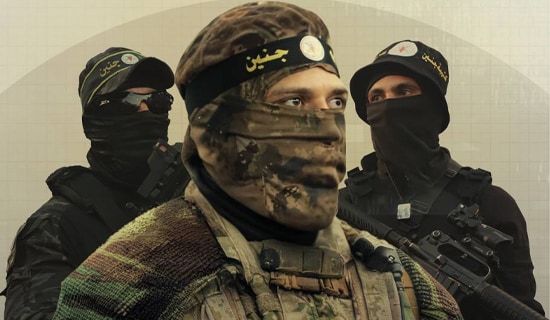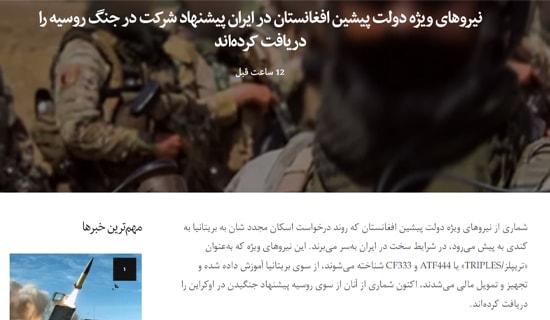In an article published June 25, 2022 on Elaph.com, UAE political analyst and commentator Salem Al-Ketbi wonders what options are available to the countries of the region for tackling the Iranian threat, given that the current nuclear negotiations between Iran and the West in Vienna are "almost clinically dead," and also given that, in recent years, Iran has come close to making a nuclear bomb and has expanded its arsenal of weapons and drones.
Noting that reality has proven the ineffectiveness of economic, political, or diplomatic pressure on Iran, Al-Ketbi states that the European countries, which are interested in cooperation with Iran, are unlikely to allow such pressures, and the same is true of Russia and China, who are allies of Iran. He adds that the U.S. too will not hasten to use pressure against Iran, either because of its approaching midterm Congressional elections or for fear that such a move will encourage the establishment of an Iran-Russia-China alliance. The military option is an effective way to eliminate the Iranian regime, he says, but that the chances that the U.S. will pursue this option are slim. He thus concludes that the only option left to the countries of the region is "establishing a network of defensive alliances" to deter Iran and defend any country it threatens. He adds that the Gulf states have no choice but to strengthen their ties with Israel and Turkey.
It should be noted that the article was published against the backdrop of reports that, during his upcoming visit to Saudi Arabia in mid-July, U.S. President Joe Biden will discuss with Arab leaders the option of forming a regional military alliance against Iran.

Salam Al-Katbi. Source: Middle-east-online.com.
The following are translated excerpts of Al-Ketbi's article.[1]
"The discussion of Iran's nuclear dossier has reverted to square [one] of the pre-2015 [JCPOA nuclear agreement], with considerable differences – all of which serve Iran's interest. The first of these differences is Iran's exploitation of the nuclear agreement that it signed with the 5+1 group, which served it as a cover and provided international legitimacy for its nuclear activity in the years [since the agreement] – to the point where it is approaching the level of uranium enrichment required for a nuclear bomb. This is in addition to [Iran's] development of its project for ballistic missiles that can strike nearby countries in the Middle East and [even] reach eastern and central Europe. Another [of these differences] is Iran's expansion of its influence – including the construction and establishment of a network of regional agents that have the power to spread chaos in various areas of the Middle East – to the point where this influence has become a significant card for Iran [to play] in its negotiations with the regional and international powers. A third [difference] is that today [Iran] possesses an arsenal of conventional weapons, including drones, which play a central role in its ability to threaten the security of the countries of the region, as well as strategic U.S. interests.
"In light of the revived tensions between Iran and the International Atomic Energy Agency [IAEA] and the signs of failure hovering above the [current nuclear] talks in Vienna – which appear to be in a state of clinical death – this most troubling question arises: What options do the countries of the regions have if the American scenario for controlling the Iranian nuclear and missile threat fails?
"What is certain is that the countries of the region have already prepared themselves for the scenario of a revival of the nuclear agreement, by means of an attempt to build bridges with Iran and open channels of communication with it. But the picture may change a little [now], in light of the indications of failure in the efforts to renew the agreement – particularly since the Ukraine crisis has created new strategic variables that are pushing Iran towards inflexibility on the regional and international level.
"Reality teaches us that economic, political, and diplomatic pressure on Iran does not yield the desired result, whether because Europe will not support such a scenario because of its thirst for energy and its desire to reduce reliance on Russian natural gas, or because every U.S. pressure campaign against Iran will not only encounter an Iranian challenge but will also encounter Chinese and Russian opposition. Even the American administration itself cannot risk taking any uncalculated move against Iran, in light of the approaching midterm Congressional elections.
"In my view, the Biden administration will not easily lose hope of renewing the nuclear agreement, or even of reaching a new deal with Iran. This is not only because most circles in the West doubt that it is possible to deter the Iranian nuclear threat without an agreement, but also because the U.S. in no way wants things to move towards an establishment of a China-Russia-Iran alliance. In light of the connection between the issues and the reciprocal influence among them, the result of the events in Ukraine will have certain ramifications on other strategic issues, headed by the Iranian issue. This is in the sense that both a Russian victory and a [Russian] defeat and any form of retreat will boost U.S. efforts to tighten the stranglehold on Iran and stop China. The opposite is also true – [a Russian victory] will make Iran a worse problem for U.S. foreign policy, because it will be hard to talk about any effectiveness for sanctions, either because of the mutual support among China, Russia, and Iran, or because of the loopholes in the sanctions on the sale of Iranian oil that undermine their implementation and provide the Iranian regime with revenues that enable it to continue to support [its] militias [outside its borders] and to develop its weapon capability.
"Undoubtedly, any alternative to tackling the Iranian threat will only succeed if the Iranian regime feels that it is at risk of collapse, by means of a direct military blow against it or a blow that will contribute to a weakening of its status and [lead] to its being brought down by the people. Since the chance that the U.S. will strike such a blow, or even threaten to do so, are slim, only the diplomatic option remains, although the chances of its success are [also] slim because it has no teeth and no other means of pressure that can increase the likelihood that it will be accepted.
"Getting back to the fundamental question about what options the countries of the region have, it can be said that the Iranian regime's tendencies do not allow an objective observer to draw up a reasonable assessment of the likelihood of arriving at solutions and arrangements to ease the tensions in the region. This is because Iran is a major player in the region, and also because it has a strong desire for hegemony [there] and to bring every regime in the region under its control and acting according to its whims…
"Accordingly, establishing a network of defensive alliances among the countries of the region, to compensate for the fading U.S. interest in the region's security and stability, would be the most reasonable and realistic option for dealing with any threat to these countries. This way, there will be a collective capability to deter the threat, and to provide sufficient protection to any of the countries in the event of danger.
"Furthermore, it is certain that the new strategic reality in the region and in the world must be considered, and that strategies must be drawn up accordingly. Therefore, Gulf [states'] closer reciprocal ties with Israel and Turkey, and with other countries in the region, will embody an essential and unavoidable approach. Likewise, it is appropriate to maintain the difficult balance [in our relations] with the U.S. and its allies on the one hand and with Russia and China on the other, because any alternative to this serves Iran and limits the Gulf Cooperation Council (GCC) countries' capability to impact events around them."
[1] Elaph.com, June 25, 2022.





